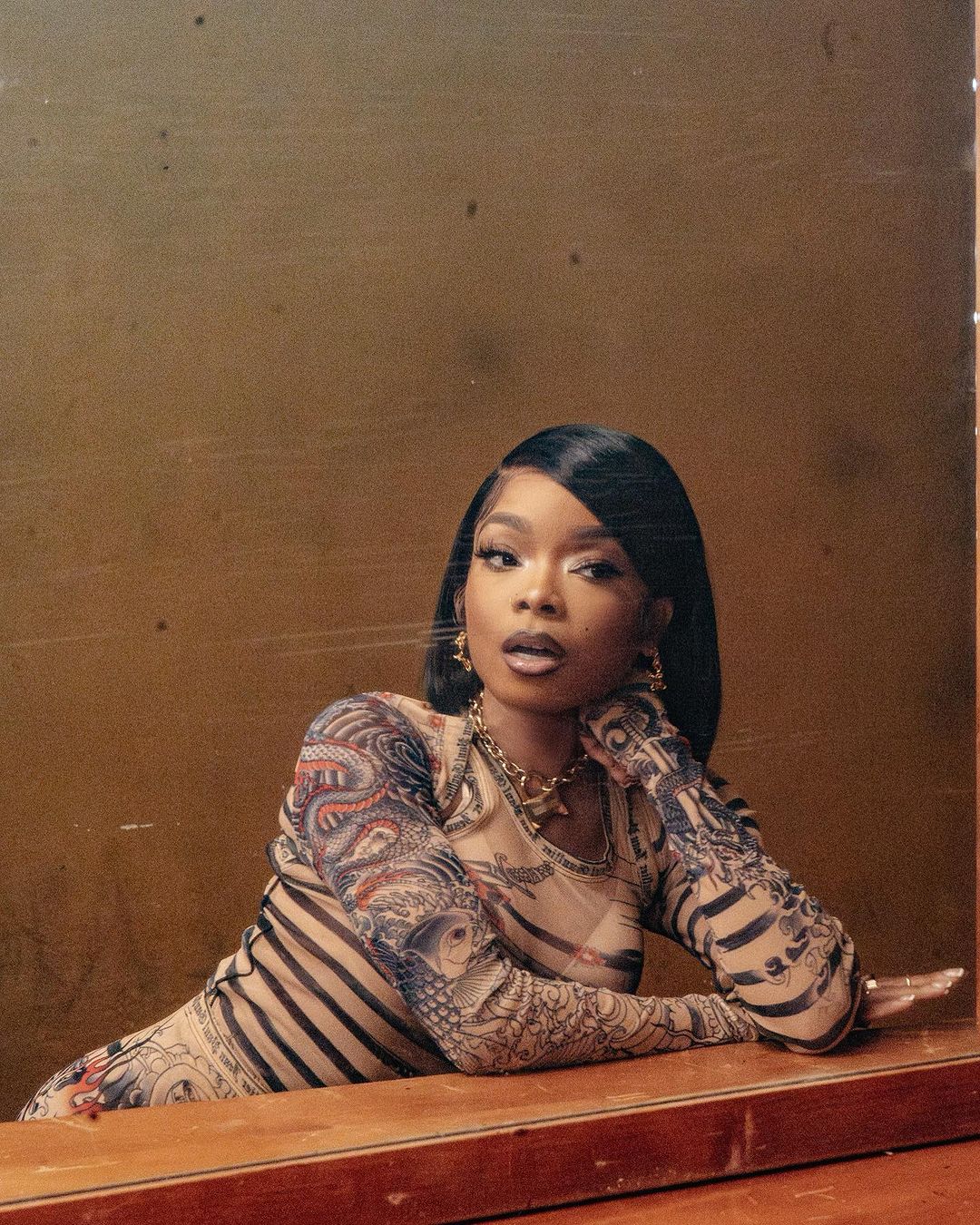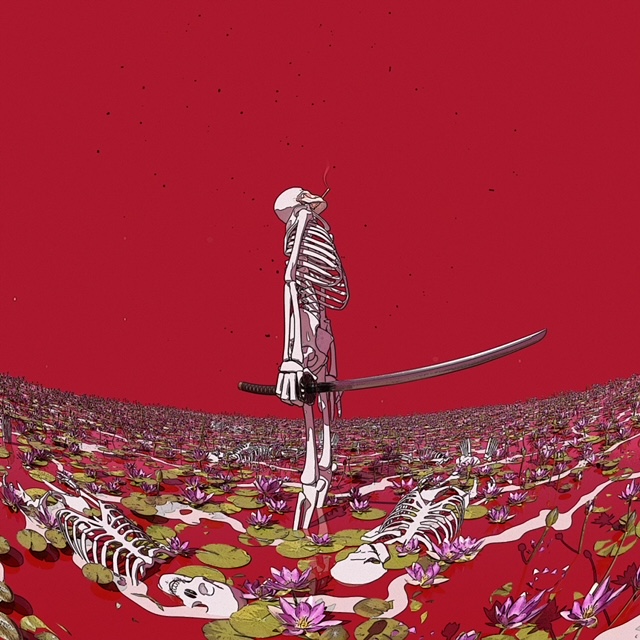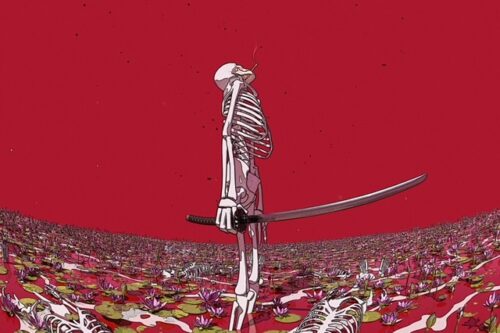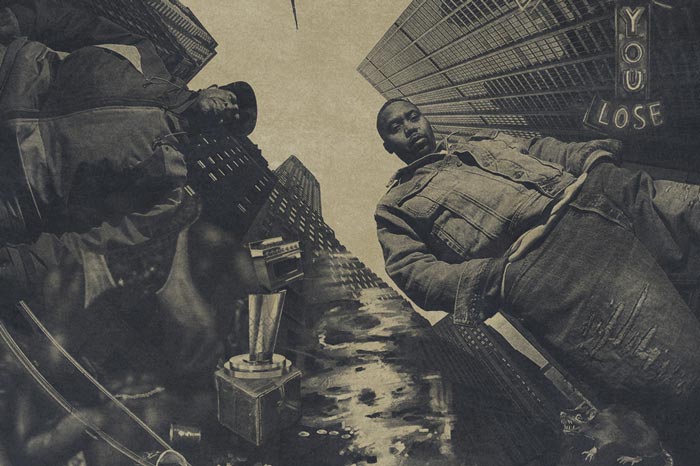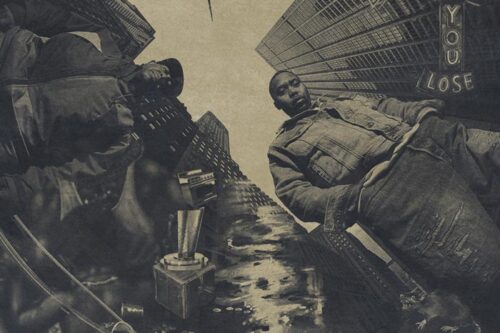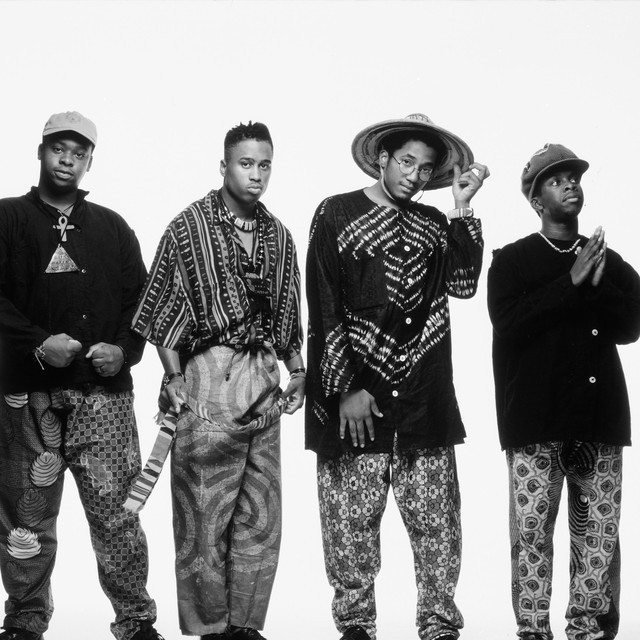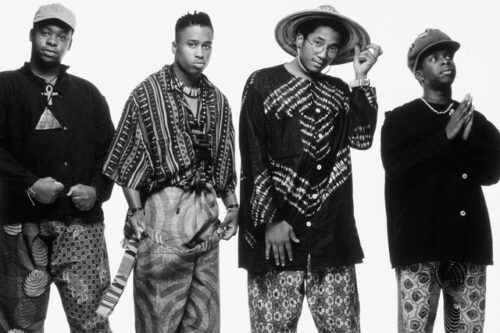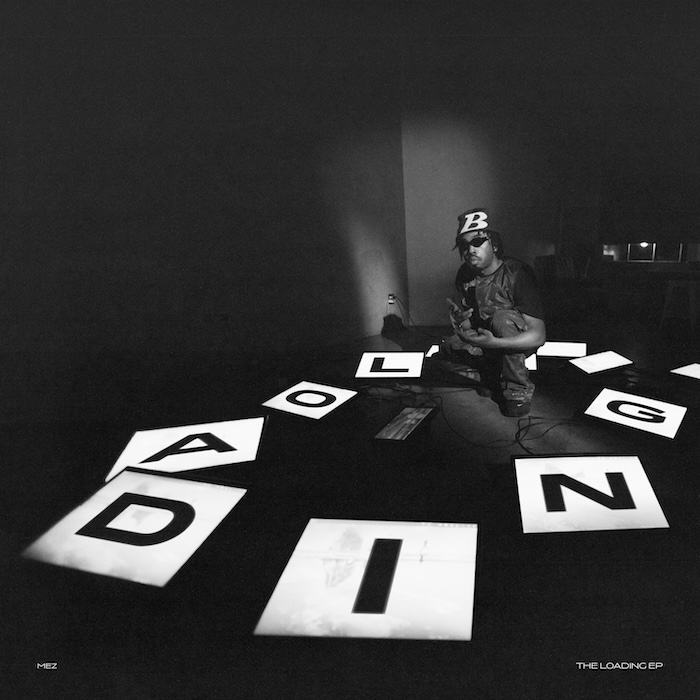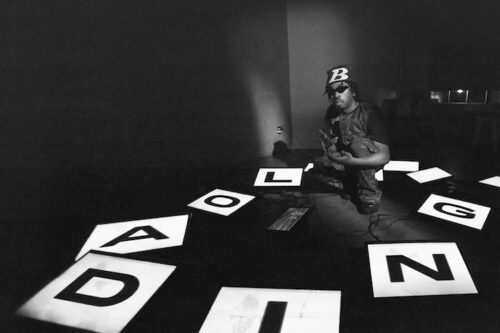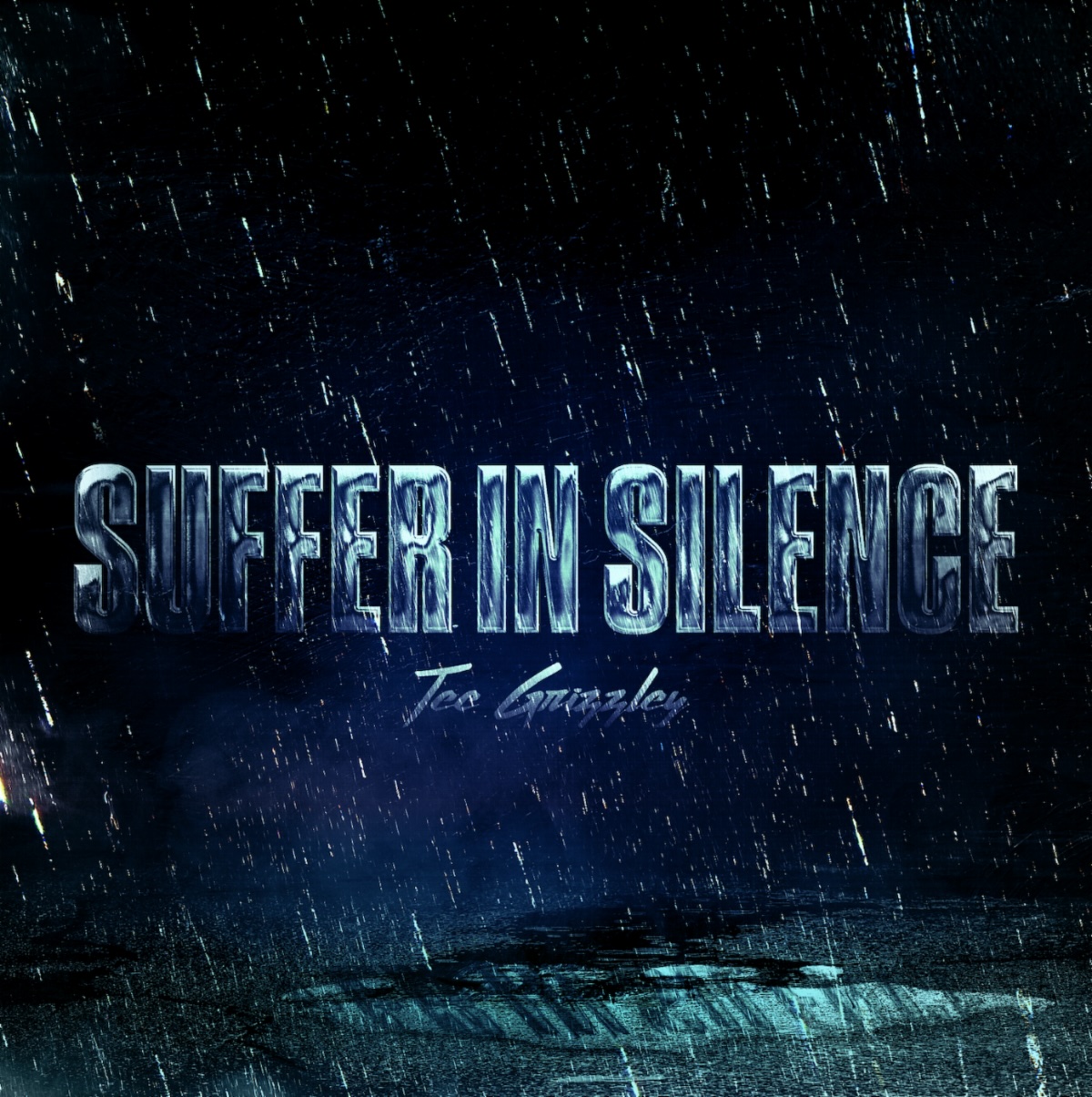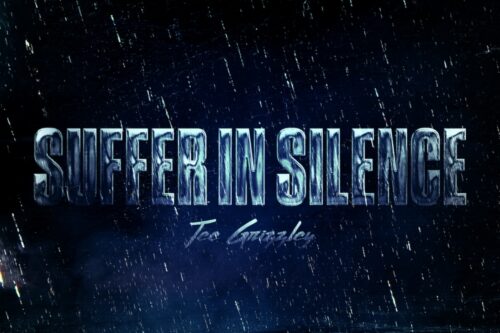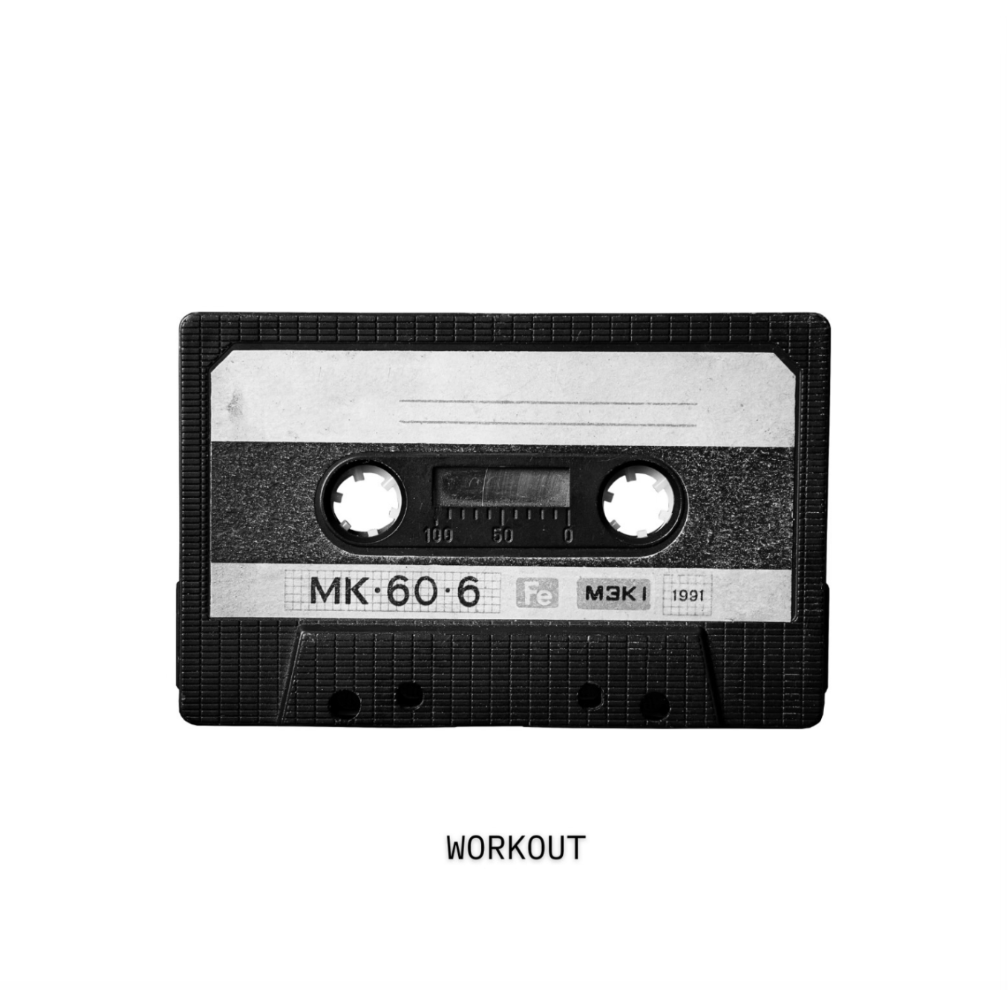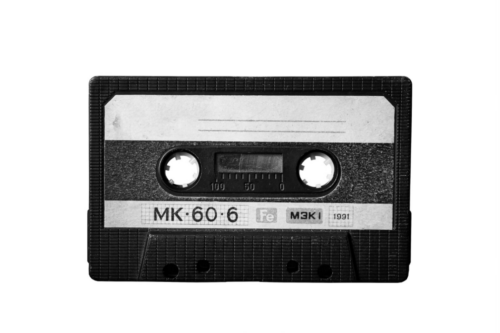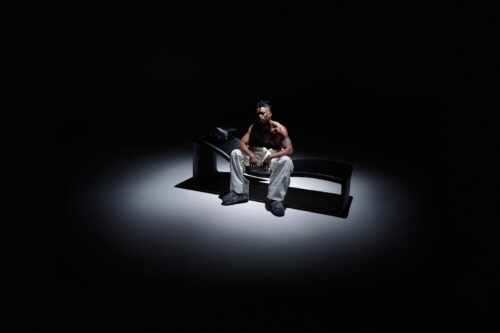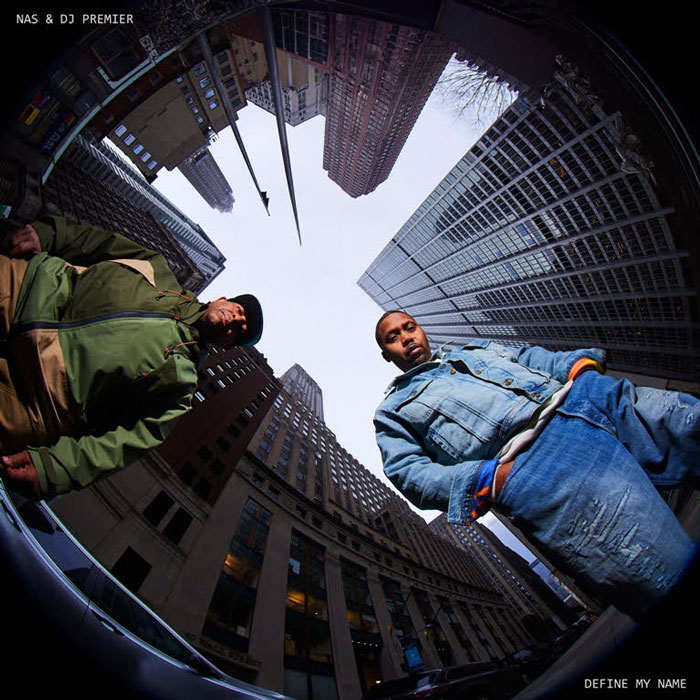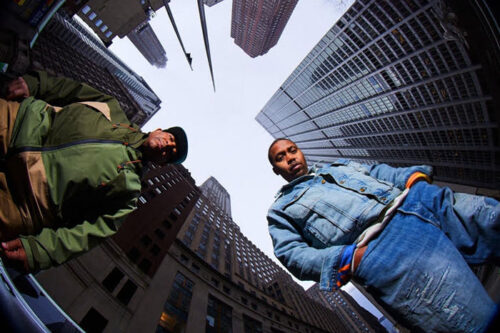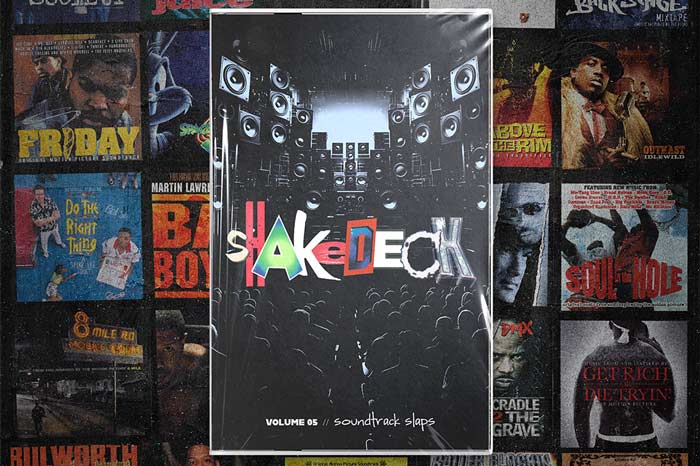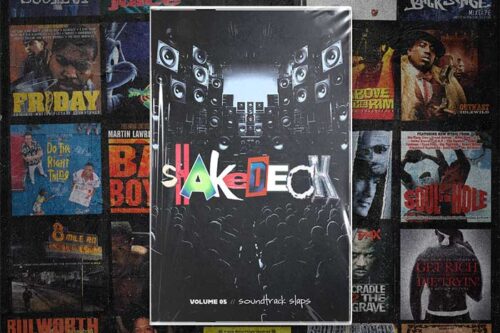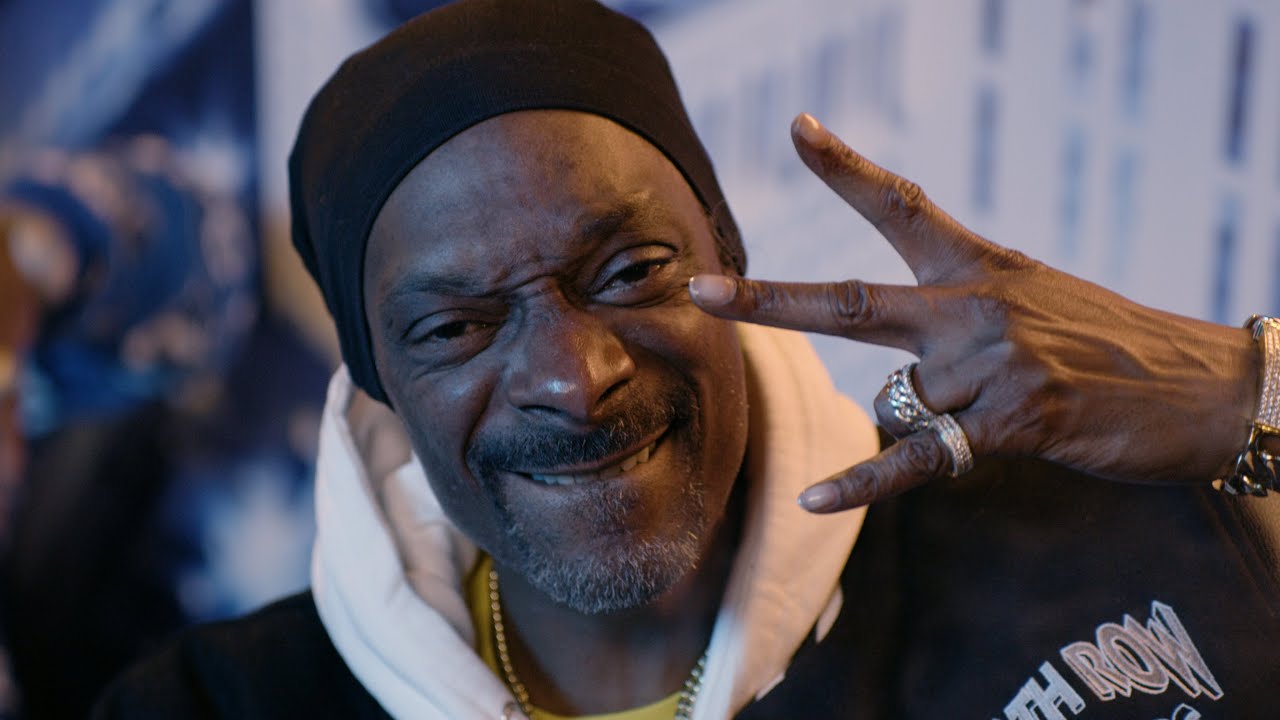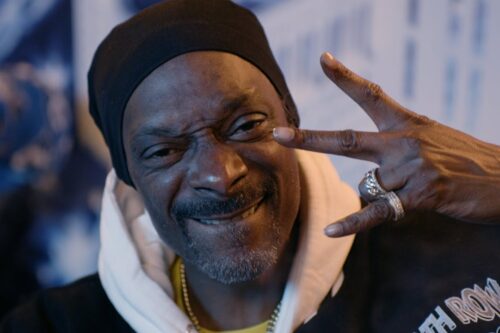
Every few years or so, a new class of R&B acts emerges and takes over our soundwaves with their unique perspective of the genre. The latest incarnation includes the likes of H.E.R., Ella Mai, Summer Walker, Lucky Daye, and Arin Ray, among several others.
Enter, Pink Sweat$.
After dropping Volume 1 back in November, he returned Volume 2 earlier this month. And with his latest EP heavily in the DopeHouse rotation, we sat down with Mr. Sweat$ to talk Volume 2, changing the R&B scene, why simplicity is key, and more.
Hailing from Philadelphia (home of neo-soul icons like Jill Scott and Bilal), he planted his own roots thanks to the runaway success of “Honesty.” Like his aforementioned contemporaries, he has found success by going against the grain and doing truly what he wanted to do with his music.
“Honesty” and Volume 1 together clearly changed your life for the better. What was it like creating Volume 2 during this time?
Volume 2 was pretty much a similar process, but having the mindset of having a little bit of a fan base and being a little bit more in-demand, now it’s figuring out how how I can start to bridge my music to a full-length album. So Volume 2 has a little more to it. Volume 1 was strictly guitar, no beats or percussion. Volume 2, started adding a little bit more rhythm to it, so it’s pretty much the bridge to an album, cause the album’s next. People get an idea of what you’re capable of as an artist and what to expect, I feel like Volume 2 was my stamp to say, “I’m not particularly going to be in a box for my career long-term.” I’m starting [with] R&B and I hope to add something to the culture of R&B, but overall I don’t want to be labeled as any genre. I want to be able to create whatever kind of music – coming from a writing background, I always appreciated being able to make whatever is on my heart cause if I want to put out a song with country influence like “I Know,” or a song like “Body Ain’t Me” too, it’s like R&B mixed with a little pop, mixed with a little singer songwriter vibes.
With SXSW being your first live performance, how was that? What’s the one memory or moment from it that you’ll carry with you?
Yeah, that was huge. Before then, I had only did like one or two performances. Ah man, I think it was Fader Fort. Being out there and slowly winning over a crowd, I feel like a lot of people knew who I was, but I was aware that a lot of people didn’t and then slowly throughout the set, just winning over people to be like, “Oh, wow I heard that song.” Or maybe, they heard “Honesty” in passing or something and they’re like, “Wait, this is that guy. Okay, cool. Dope.”
With everything going on, have you had a moment to sit down and be like, “Oh sh*t, this is really happening?”
Yeah, honestly, I think my first LA show was that moment for me. Before I would just show up with my guitarist and we’d run though a set, but now we doing a band, we got the lighting, we got smoke. It’s starting to feel more like an experience.
Between “Coke & Henny Pt. 1” and “Coke & Henny Pt. 2,” things kind of go left with the girl you’re singing about, but you don’t mention what happens. Why leave the details out?
So for me, at least at this stage, I’ve tried to not be selfish musically, because I want people to attach something and create their own story to my songs. It’s detailed enough to where you’re like, “Oh, well clearly something happened,” but it leaves just enough out where you can fill in the blanks for yourself and imagine and have a conversation like, “Yo, what you think happened?” It creates a conversation, I feel like as a new artist, giving people something to communicate about is important. Because if I told everything, I’m a new artist, nobody knows me really. People know me, but they don’t know me yet–like, they know the “Honesty” song. So me giving away all these juicy details is not really as juicy as when the album comes out, cause by then people will be in tune and they know, “Yo, he’s this kinda person, so this situation happened and spoke on it and broke [it] down like that.” I specifically write so that people can imagine, because I feel like that’s something in our culture nowadays that people don’t really do much anymore, even on a regular level. A lot of people are trying to stay so realistic with life, it’s a beautiful thing to have your mind going. Like you asking that, it proves the things that I’m trying to do are working, it’s very intentional. It’s like nah, I’m not going to say it because I want people to ask these questions and then I can give real answers in interviews too.
Is letting people create their own stories the reason why you divided “Coke & Henny” into two songs?
Yeah, I mean also the part-one/part-two thing was just me realizing we go through phases of our life that, when you are having a good time – a grand time with someone – you don’t really meet that person, who they actually are. That representative, that’s something my dad says. You don’t know who they are day-to-day. The second part was essentially me saying there’s always something else after the fun. If you meet someone at a club, or at a party, that may not be who they actually are, it could be an uptight, tense person day-to-day, but that might’ve not come out that night. Then you meet up with them later like, “Hey, let’s hang out.” You start building a relationship based on that one night, but then you look back and realize, “Man they don’t seem like the person that I met.” But by then you’re already in some sort of a relationship and it’s kind of too late.
You have this sort of simplicity when it comes to you altogether – your music, the production, your brand – how do you view simplicity when approaching everything musically?
Simplicity is key to me because I come from a musical background as far as church, like doing all the crazy stuff. But when you’re making a song, I think the most important thing is that people can, one, find some sort of reliability, and two, something that they feel like they can sing along with. So, from a songwriting standpoint, that is always my approach. I’ll show off sometimes where like I really want to sing on this one like “Body Ain’t Me,” doing a couple riffs, stuff like that. Overall, it’s just about picking those strings on your heart where it’s like “Dang, it’s like he said the line this kind of way” and it just triggers something and then it made me think of something or somebody.
Looking at the producers for both Volume 1 and Volume 2 and even the directors for your videos, they all fall under the Thrice Cooked Media umbrella. What’s the creative atmosphere like over there?
Pretty much it’s just me and my friends. We built the company around me and we’re just so close that everything is effortless. We’ll sit around, I’ll throw out ideas, I’ll be like, “Yo I wanna do this, I see it like this, opening up like this, sound like this.” And then somebody else will pick up from there, “Oh wait, well maybe do this.” It’s literally just friends sitting at dinner most of the time, it’s not traditional it’s literally us just throwing ideas back and by the time we’re done and it’s time to shoot the video, they have all the infrastructure to put it together–knowing the budgeting, how much does it cost, the bill, the venue. I’m just thinking about the creative side, I’m like, “Yo, I want us to do this,” they’re like, “Well.. might not be possible,” and then we have to make adjustments and stuff like that. It’s pretty much these are my very, very, very close friends, essentially my family. We live together in New York – well, I just moved to LA, but we lived together and we’re all gonna get a spot here in LA together. It’s just like family, it’s just like being at the table with your family. Everybody got that uncle that’s with the crazy ideas. Just imagine being around these dudes who can actually make it happen, “Yo you ever thought about cereal and milk,” and you’re just like, “What…. cereal and milk?” and they go, “Yo my cousin got a cow at the crib.” Boom, that’s us, we just think of this bizarre stuff and try to make it work.
You and Tierra Whack are both from Philly and you’ve done a little bit of work together. How does it feel to see another artist from your city gain that momentum and traction and become more of a recognizable name?
It’s amazing, bro. Truly an amazing feeling, cause I’ve known Tierra for years, she’s known me before I even considered being an artist. My inspiration comes from my friends and a lot of people ask me who inspires me and sometimes I tell people what they want to hear, but the reality is it’s my friends, people that I was grinding with years ago in small studios–bumming it out on couches and eating noodles and sh*t. With her, she’s a big inspiration as far as me believing I could make dope visuals. I’ve never really seen anything like what she’s done. I told her I shot a video for “Honesty” and then when I saw her’s I was like, “Oh, woah, woah, woah, we gotta do our video over,” because I saw something and it inspired me. I really feel like the first video I shot, it was me but it wasn’t 100% me, it wasn’t me being my self-self. I’m goofy, I’m serious, I’m happy. I feel like all my visuals embody all different parts of me to the max. I love zombies, so I did a zombie video. I love the idea of acting and wanting to be somebody else, so I played a nerd. “Honesty” is like. “Yo, let’s make a video where…,” that was the first thing where we discovered our template for how we shoot videos. We only do one performance shot every video. So, it’s stuff that I want to see, it’s like I don’t like seeing videos where people are always just filming the songs in random locations, in a Ferrari and then canvas switch and then they’re just in the desert. To me that’s not exciting. It’s 2019, we’ve seen Ferraris and Lambos already.
Throughout the history of R&B, many artists have been rooted in the church. Yourself, ELHAE, Eric Bellinger and Sevyn Streeter just to name a few. Looking back at your time there, what do you think is the most beneficial thing you gained?
I would say freedom of creativity, because when you’re in church a lot of times the culture is loose as far as musically. Some churches you can go to, you’ll see a little kid on the drums or on the piano. That doesn’t happen a lot. It’s just the freedom of creativity and just taking a chance on whatever it is that you’re trying to do and then seeing it turn into something. When I first started on the drums at my church I was probably five years old, I wasn’t really good, but I had rhythm, I had tempo. To see it go from point A at 5 to point B at 7 and you’re like, “Wait this kid’s kind of dope.” Somebody had to give me a shot and that talent had to be facilitated, though, so it was nurtured. That’s something that I learned, you can still go from point A to point B to point C and work your way through any goal. It’s not just A to B. It can seem like that sometimes from the outside, but it takes time and that’s something I learned in church.
The EP-before-debut-album approach has become more popular with R&B acts. How do you think coming with an EP before your debut effects the pressure, if any, before the debut?
For me I’d say, a lot of my experience comes from writing songs and watching other artists, so that’s me being a fly on the wall. The way I look at it is, don’t give away too much music in the beginning. I feel like rap culture is a little different, but as a singer you don’t want to give away too much music and not know that you have an audience that’s gonna be able to digest and appreciate it. An EP to me is perfect, because you’re essentially giving somebody a hint of who you are. So people fall in love with Volume 1, oh wow they actually look forward to something else. If I were to put out 10, 15 songs, that’s kinda like, “I don’t even know you bro, who are you? Why you got so much music?” Then you’re competing with people who already have million dollar budgets, marketing. You just kinda want to be a little strategic and make everything hit the right way versus if I were to do 10 songs with just two songs out at that time, I don’t feel like they would’ve hit as cleanly cause it would’ve been too much. A full acoustic project, 15 songs, that’s a lot for somebody nobody even knows, to come out of the blue.
Even though we’re just coming off Volume 2, should we expect a similar narrative for your debut album? How about collabs?
For the album, what I’ll say is it’s gonna be classic, it’s gonna be timeless. The same DNA as Volume 1 and Volume 2, but it’s not gonna be all acoustic, it’s gonna have that live feel where you’re just like, “Yo, I can listen to this in ten years and still feel the same way.” I’m not doing too many features – I don’t think I’ll do any features on my project for a while, because I’m trying to contribute to the culture of R&B and black music in general. You don’t have to have a feature to succeed. I feel like subliminally – I don’t think it’s intentional, I don’t think people are evil no – they’re just trying to make money and they feel like, “just go in and do it,” and that’s how it’s always been done, they’re always gonna do that. My job and my hope to contribute to the culture of R&B and black music is that I’ll try my best to show people and prove to labels and prove to the corporations and things like that, that black music is diverse. We don’t all rap, we don’t all sing the same kind of music, everybody likes different things in the world and people see that, but for whatever reason when I get in the Uber they put on some rap and I’m like, “Thanks well, that’s kinda messed up. Like you don’t know me,” but like I said my job and my hope is to contribute to the culture and change people’s mindsets, so when the next black artist who wants the same – or whatever kind of music they want to do – the label’s not going to put pressure on them like, “Yo we need a feature, we need a feature! That’s the only way it’s going to work, they’ll give you more of a chance!” They’re like, “Yo do you, whatever you want to do, we’ll support it.” That’s my goal for the future, it’s not really about me 100%. I’m a songwriter, I could always just stay writing songs, but I want to contribute to the culture and preserve it. If you’re not gonna help change, you have no place to really complain. I was always complaining as a songwriter. Being real, people don’t even want to sing black music that’s beautiful and that’s not about disrespecting or calling somebody a b-word, nobody wants to do that. I can complain about it or I can put out “Honesty.” I’m just trying to contribute to the culture in a different way.
You’ll be heading off on the Pink Beginning Tour at the end of next month. Being that it’s your first big tour, what are you most excited about?
Man, meeting the fans. That’s something that I’ve always – I don’t want to say always – since I’ve become an artist, that’s something I was most excited about, because that was something I was always afraid of as a writer. I never wanted to be an artist, I didn’t want the attention. I wanted to be able to chill with my friends, with nobody bothering me. Now, I’ve embraced it. So the exciting part to me is meeting all these people who are DMing me, people who are reposting my songs, people who are quiet listeners, they want to come out and support and show love face-to-face and just connect and be like, “Yo, oh my god, I read your DM, great to finally meet you,” stuff like that. Traveling, I never really traveled outside of working, now it’s different cause this doesn’t feel like work, it feels like being a kid waking up everyday and all you gotta do is go play on the playground and kick it with your friends. Traveling with my friends and sharing these experiences, it’s weird, I can’t really explain it. It’s like going to outer space with your friends, it’s a whole new world to me.
Just in your life, maybe not musically, in the near future what do you hope to accomplish?
My next goal is to get a plaque for “Honesty” and hold that up and say thank you to all my supportors, fans, friends and family, and just inspire, because that’s what it’s about: inspiration. You can’t put a price on inspiration, can’t put a time on it, nothing. So having that plaque, whether it’s gold or platinum, and being able to share that with my friends, family, supporters and fans, and then say, “Listen, I’m a black artist from west Philadelphia, we put out a song with no beats and no features and we went gold or platinum. You can do whatever you want, straight up.” Everybody told me, “That was impossible. Is this it?” A lot of time I would get that, “So, is the song finished?” Yeah it’s finished, this is how we putting it out, “Oh interesting.” If we can get that, that’s my next goal. Be it that, I’ll be so happy. Honestly, I feel like my mission would have already been met and then after that I can just keep doing everything bigger and better and just inspiring people, because what else is it for? How many chains can you really buy before it’s really just a chain or how many sneakers can you get? My longterm worth on this Earth is what I leave behind. I want to live forever, the best way to live forever is be in people’s hearts and minds.

